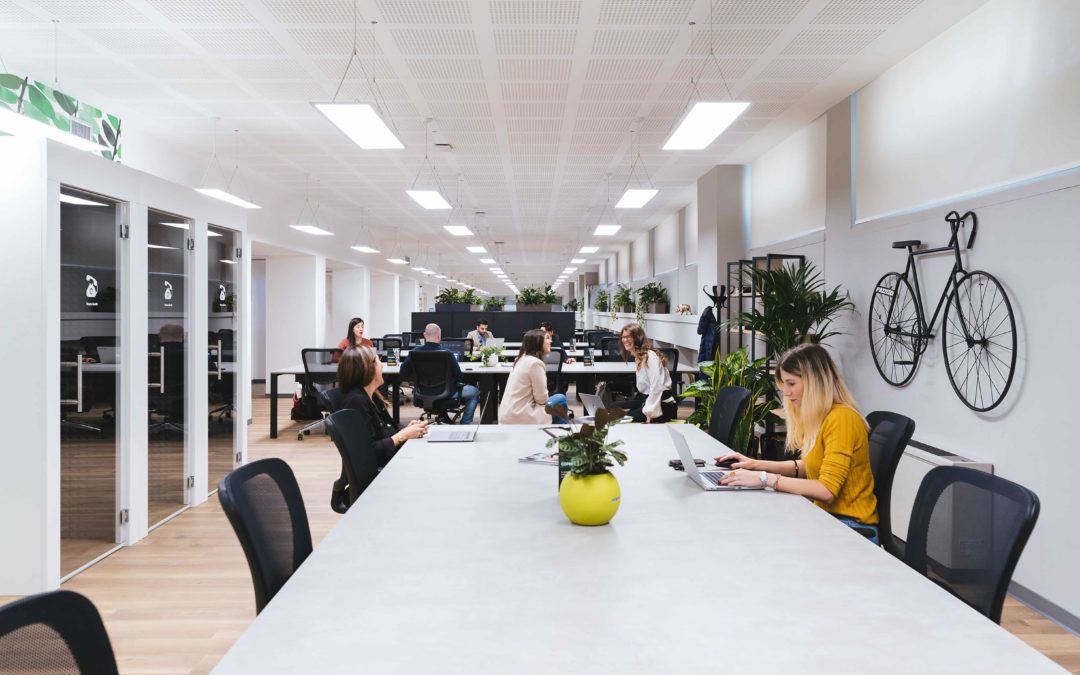Coworking, coliving and workation are more in demand than ever
The covid pandemic and digitalization made work more flexible in numerous companies, giving the topics new momentum.
Coworking can be described as a phenomenon and form of working, primarily accomplished in shared and collaborative workspaces. The difference from a regular “service office” is that coworking values community and relationships. Space functions as an opportunity to meet, not primarily as an aesthetic office feature.
Coworking can also be described as a state of mind, a relationship-based approach to how the future of work could look like.
To understand “what is coworking,” it is necessary to understand what coworking is not :

- It is not just an office renting desks
- You will never find people working independently AND alone
- Neither it is a fixed term nor a fixed location
Coworking means being part of a community-based movement that is in the constant process to optimize the way people work.
Coworking is the answer to solve the problem of isolation and location-dependent professionals who are tired of their daily commuting or office set-ups. Flexibility and freedom come hand in hand with exchanging an office for a coworking desk.
Why do we talk about socialization and collaboration to teach you what is a coworking space?
Because it is easy to find free WIFI in a coffee shop, but access to a community gives you so much more: it is a support system, educational network and creative think tank – all in one. For many, especially for community consultants, coworking is formative. People are fascinated and inspired by mutual inspiration and assistance.
Coworking in all its forms is an expression of freedom that stands for new work and the cultural change of a modern and meaningful working world.
- It is no longer limited to creative or freelance professionals.
- It is not only found in urban areas – also at countryside it is popular now.
- It is a symbol that the digitalization of the working world cannot bypass genuine interpersonal relationships.
We humans need human contact. It’s not about working alone but autonomously – so society is not excluded in the process.
Coworking leads to upgrading locations, more sustainability, and new use of synergies. It is up to us whether we carry this change further into the world, whether we continue to fill the concept of coworking with life or not. We will undoubtedly encounter one or the other obstacle, as change is always associated with the challenge, uncertainty and leaving a comfort zone. But it’s precisely pioneers like these that we need so that we can finally shape our working world the way we like it.
Work-life balance is key
Although no universal definition exists, Spinuzzi’s “Working Alone Togther” (2012) gets pretty close to the heart of the matter. Coworking is the flexible working of different knowledge works in a shared, standardized place.
In addition, it talks about a social network without hierarchy and with advantages that are more valid in theory than in practice. The basis of sharing can be considered from both a social and architectural perspective. The combination of collaborative with non-collective spaces could be the key to success.
Coworking spaces, which are accessible to individual users and companies for a fee, usually distinguish between the following
Variants of places to work in a coworking space:
Flex desks:
flexible workstations available in specific (often open areas such as a lounge or open plan) and allocated on a daily or multiple daily bases on a first-come, first-serve basis. These bookings are arranged internally or also via e Workspace on-demand platforms.
Fix desks:
fixed workstations that are assigned as part of a monthly tariff for coworkers. Depending on the location, access is limited in time.
Private offices:
lockable private offices that can be rented by individuals or companies monthly.
Prices in Europe range from €150-250 in the mid-range price segment. The more the focus is on corporates and hybrid work, the more space is needed on average.
Today, coworking is no longer limited to creative or freelance professionals. It is not only found in urban areas but is now also popular in the countryside. It is a symbol that the digitalization of the working world cannot bypass genuine interpersonal relationships.
